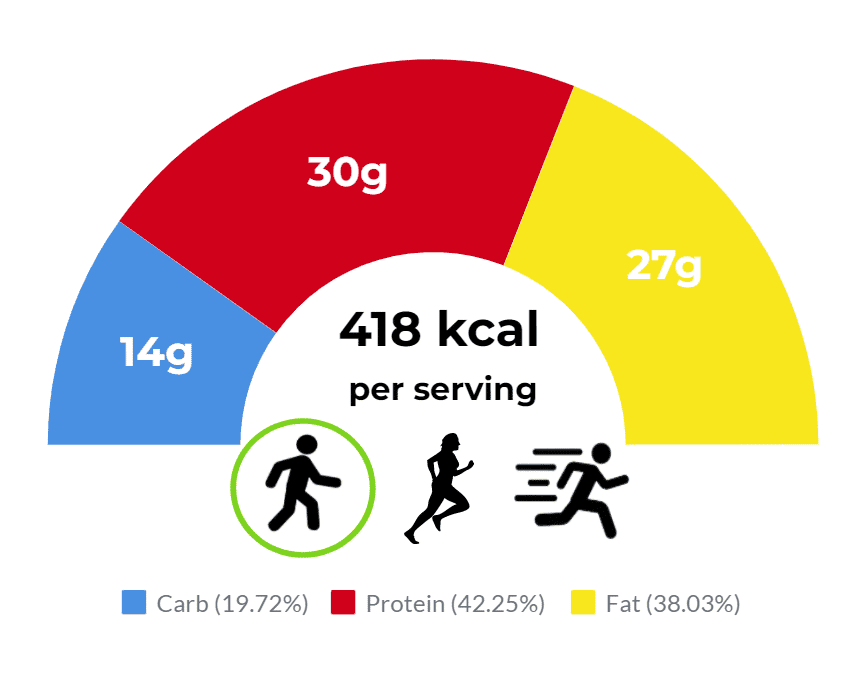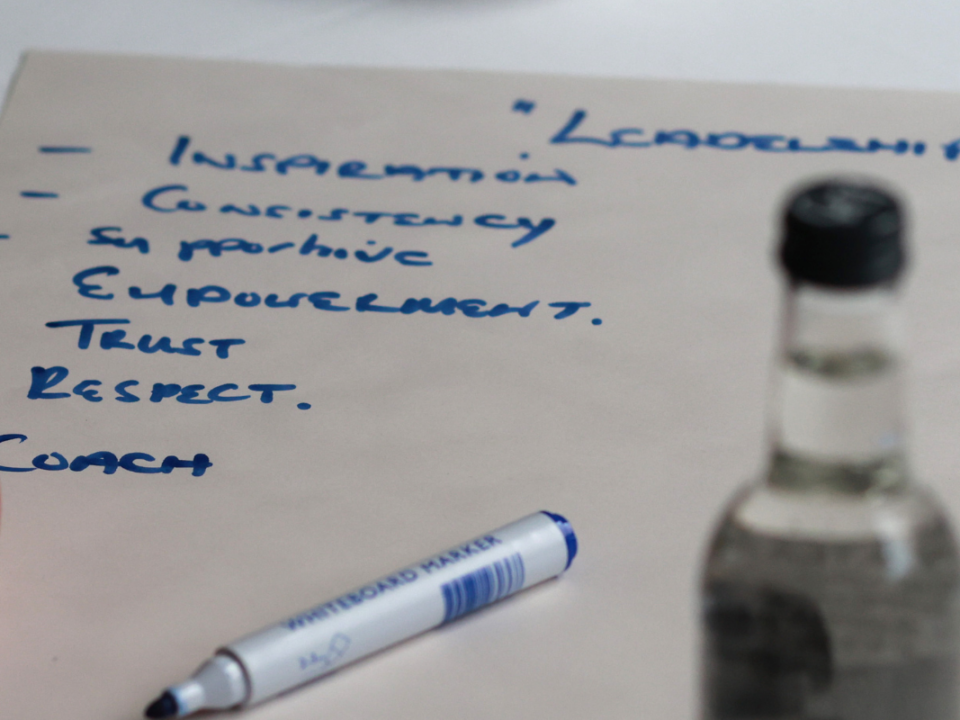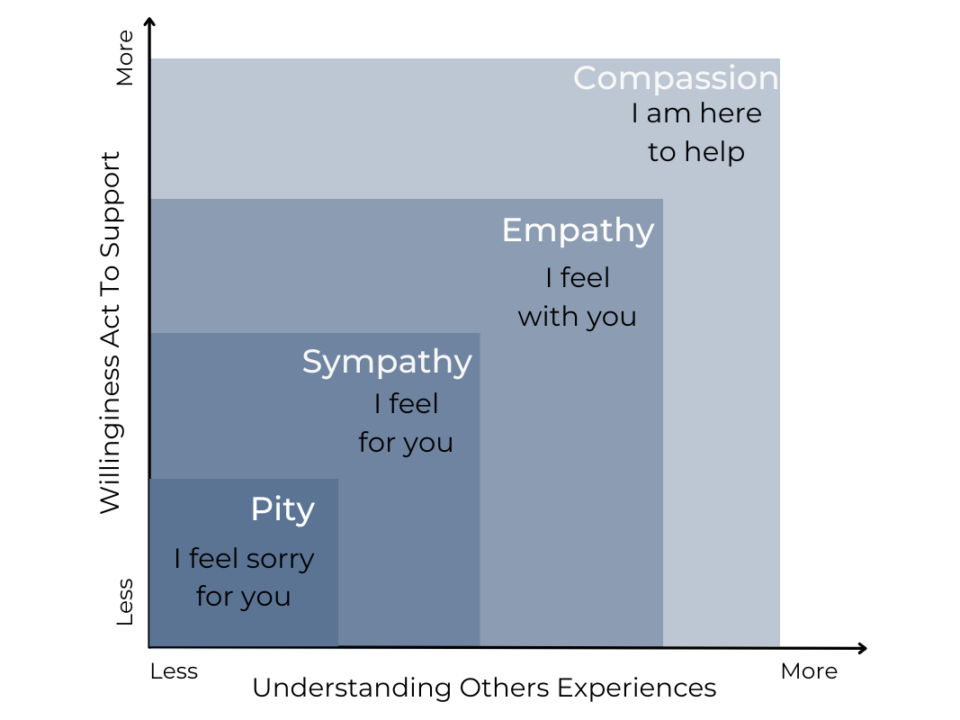
Ask the Nutritionist: All about Calories & Macronutrients
November 29, 2024
Staying Healthy This Christmas
December 11, 2024
Ask the Nutritionist: All about Calories & Macronutrients
November 29, 2024
Staying Healthy This Christmas
December 11, 2024As Christmas approaches, the festive season often brings with it an abundance of indulgence—whether that’s the warmth of a spiced mulled wine, one too many cocktails, or the endless parade of mince pies and chocolates. It’s a time for celebration, but let’s face it: occasionally, the revelry leads to overindulgence, and with it, the not-so-welcome guest—the hangover.
While abstaining from alcohol entirely is an option, for most of us, the reality is finding a balance. And while a side-effect-free night out remains a wishful fantasy, there’s value in understanding both the immediate and long-term impacts of alcohol on our bodies and minds.
Recent research has explored the long-term effects of alcohol consumption and brain health and investigated the key time-points within a person’s life where our brains are more sensitive to the long-term effects of alcohol consumption. While we are not trying to rain on your parade, it’s important to be aware that throughout our lives, even day-to-day, we may be more sensitive to the long-term effects of substances such as alcohol and unfortunately, we don’t always consider the long-term effects of our behaviors. Food for thought!
And then there’s the morning after. While hangover pills and remedies promise relief, most deliver only modest results. That said, some simple strategies can make a difference in how you feel the next day. Understanding how alcohol is metabolised by the body is key to mitigating its effects, and thoughtful nutrition choices can help ease the headache, settle the nausea, and restore some semblance of normalcy.

The Metabolism of Alcohol
Alcohol (or ethanol) contains 7 calories per gram and has no micronutrient value. The body cannot store alcohol and must metabolise it (use it for energy) when it is consumed. When you drink alcohol, it goes through a process of absorption, distribution and then metabolism. The absorption process is influenced by multiple factors including genetics, ethnicity, gender, age, body type, type of beverage, if food has been consumed and food type, drinking history and, of course, the volume of alcohol consumed. These are some of the reasons why some people can drink more than others and why alcohol consumption can have highly variable physiological responses in different people.

Alcohol metabolism occurs mainly in the liver. When you drink alcohol, your body makes metabolising this alcohol a priority over all other metabolic processes, and because your body can’t store alcohol and must metabolise it right away, other metabolic processes suffer, mainly the efficient metabolism of fats and carbohydrates. This is most obviously seen on the day following excessive alcohol consumption as shakiness and a craving for sugary foods as the body struggles to appropriately balance sugar levels in the blood.

Physical Effects of Overconsumption of Alcohol on The Body
- Temporary increase in heartbeat & blood pressure
- Reduction in peripheral vision
- Difficulties in processing & recalling information
- Significant memory loss occurs with high doses of alcohol
- Poor quality sleep: decreases in REM (deep) sleep, resulting in impaired concentration, tiredness & irritability
What is a Hangover?
A hangover is a result of the excess consumption of alcohol that your body is unable to metabolise at the rate it is being consumed. Excess alcohol consumption results in dehydration, damage to the lining of your stomach that causes nausea and inflammatory responses that result in tissue damage to name but a few.

Eat Before You Drink
What you eat before you start drinking can have a huge effect on how you feel the day after. Food helps slow the absorption of alcohol, which will prolong the time it takes alcohol to reach your bloodstream. Never drink on an empty stomach.
Keep Sipping Water
Drinking water between drinks is another simple approach that will help – even a few small glasses will make a big difference to your hydration and your body’s ability to deal with the alcohol. If you can’t manage that, then at least drink a couple of glasses of water when you get home. Taking a multivitamin tablet and a pinch of salt with the water is also no harm as excess alcohol consumption depletes vitamin stores, which are important for recovery, and many vitamins are important in the metabolism of ethanol.
Choose Wisely
Let’s talk about your drink choices—because believe it or not, they can make a big difference in how you feel the next day. Research has shown that some alcoholic beverages are more likely to leave you nursing a brutal hangover than others. Darker drinks like whiskey, wine, and certain beers tend to be the worst offenders, while clearer options like vodka often result in milder aftereffects when consumed in the same amounts.
And let’s be honest—we don’t need a scientific study to confirm that mixing drinks is rarely a good idea. If you want to minimise the risk of a rough morning, it’s best to stick with the same type of drink throughout the night.
Treatment
Let’s face it—there’s no magic cure for a hangover. But the good news is, there are steps you can take to help your body recover from the effects of overindulgence. It all starts with giving your system the tools it needs to bounce back, and that begins with what you eat.
Antioxidant-rich foods are your best friends when it comes to calming the body’s inflammatory response to alcohol. Fresh berries, leafy greens, nuts, seeds, oily fish, and eggs are all excellent choices to support recovery. Not only do they provide essential nutrients, but they also help your body fight off the oxidative stress caused by alcohol.
If nausea is part of your hangover experience, ginger is a game-changer. A tried-and-true remedy for queasiness, ginger can help settle your stomach as your body works to get back feeling normal. Brew some fresh ginger with green tea, or toss it into a smoothie with vibrant fruits for a refreshing pick-me-up. Need inspiration? Check out our recipe page for delicious dishes and drinks featuring ginger as the star ingredient.

Fluids are a priority, so begin by sipping on some water to help replace the fluids that you lost on all of those trips to the toilet the night before. Mixing an electrolyte sachet into your water to replace lost electrolytes is a good idea if you are having trouble eating solid food. Coffee has been the go-to drink for treating hangovers for generations, mainly because it is a stimulant therefore it helps people feel more alert. Recent research has shown that drinking coffee can help to treat hangovers due to the antioxidant compounds that freshly brewed coffee contains. In my opinion, drinking coffee to treat your hangover is a personal thing – some people find it works wonders but for others it makes them feel worse. My advice is that if you find it helps, then stick with it, but if it doesn’t help, then stick to water and electrolytes.
Exercise is the last thing most people will want to do with a hangover but some physical activity has its merits. Exercise increases your metabolic rate and blood flow, which can help speed the removal of toxins. Make sure you are hydrated before you head off for your exertions, and bring some water to replace lost fluids.

What NOT To Do!
We’ve all heard the supposed “cures” for a hangover: the classic greasy fry-up, pizza, white toast, energy drinks. While these might sound tempting in the moment, they’re not doing you any favors when it comes to actual recovery.
Sure, a big fry might feel comforting, but it’s more likely to weigh you down than help you bounce back. These foods might provide a fleeting sense of relief, but they do little to support your body in dealing with the after effects of alcohol. In fact, they can sometimes make you feel worse. Instead of relying on these quick fixes, focus on nourishing options that actually help your body recover. Trust us, your future self will thank you.
Summary
The festive season is all about celebrating, but it’s worth taking a mindful approach when it comes to alcohol. From eating a balanced meal before you start drinking to staying hydrated and choosing your drinks wisely, small steps can make a big difference. If the dreaded hangover does strike, focus on recovery with antioxidant-rich foods, plenty of fluids, and perhaps some gentle exercise to get back on track.And remember—while the classic greasy fry-up or a can of energy drink might sound tempting, they’re more likely to hinder than help. Instead, treat your body kindly with nourishing options and hydration. The key is balance: enjoy the festivities, but keep your well-being in mind. Your future self will thank you!
Visit drinkaware.ie for more information regarding responsible and safe alcohol consumption.
As Christmas approaches, the festive season often brings with it an abundance of indulgence—whether that’s the warmth of a spiced mulled wine, one too many cocktails, or the endless parade of mince pies and chocolates. It’s a time for celebration, but let’s face it: occasionally, the revelry leads to overindulgence, and with it, the not-so-welcome guest—the hangover.
While abstaining from alcohol entirely is an option, for most of us, the reality is finding a balance. And while a side-effect-free night out remains a wishful fantasy, there’s value in understanding both the immediate and long-term impacts of alcohol on our bodies and minds.
Recent research has explored the long-term effects of alcohol consumption and brain health and investigated the key time-points within a person’s life where our brains are more sensitive to the long-term effects of alcohol consumption. While we are not trying to rain on your parade, it’s important to be aware that throughout our lives, even day-to-day, we may be more sensitive to the long-term effects of substances such as alcohol and unfortunately, we don’t always consider the long-term effects of our behaviors. Food for thought!
And then there’s the morning after. While hangover pills and remedies promise relief, most deliver only modest results. That said, some simple strategies can make a difference in how you feel the next day. Understanding how alcohol is metabolised by the body is key to mitigating its effects, and thoughtful nutrition choices can help ease the headache, settle the nausea, and restore some semblance of normalcy.

The Metabolism of Alcohol
Alcohol (or ethanol) contains 7 calories per gram and has no micronutrient value. The body cannot store alcohol and must metabolise it (use it for energy) when it is consumed. When you drink alcohol, it goes through a process of absorption, distribution and then metabolism. The absorption process is influenced by multiple factors including genetics, ethnicity, gender, age, body type, type of beverage, if food has been consumed and food type, drinking history and, of course, the volume of alcohol consumed. These are some of the reasons why some people can drink more than others and why alcohol consumption can have highly variable physiological responses in different people.

Alcohol metabolism occurs mainly in the liver. When you drink alcohol, your body makes metabolising this alcohol a priority over all other metabolic processes, and because your body can’t store alcohol and must metabolise it right away, other metabolic processes suffer, mainly the efficient metabolism of fats and carbohydrates. This is most obviously seen on the day following excessive alcohol consumption as shakiness and a craving for sugary foods as the body struggles to appropriately balance sugar levels in the blood.

Physical Effects of Overconsumption of Alcohol on The Body
- Temporary increase in heartbeat & blood pressure
- Reduction in peripheral vision
- Difficulties in processing & recalling information
- Significant memory loss occurs with high doses of alcohol
- Poor quality sleep: decreases in REM (deep) sleep, resulting in impaired concentration, tiredness & irritability
What is a Hangover?
A hangover is a result of the excess consumption of alcohol that your body is unable to metabolise at the rate it is being consumed. Excess alcohol consumption results in dehydration, damage to the lining of your stomach that causes nausea and inflammatory responses that result in tissue damage to name but a few.

Eat Before You Drink
What you eat before you start drinking can have a huge effect on how you feel the day after. Food helps slow the absorption of alcohol, which will prolong the time it takes alcohol to reach your bloodstream. Never drink on an empty stomach.
Keep Sipping Water
Drinking water between drinks is another simple approach that will help – even a few small glasses will make a big difference to your hydration and your body’s ability to deal with the alcohol. If you can’t manage that, then at least drink a couple of glasses of water when you get home. Taking a multivitamin tablet and a pinch of salt with the water is also no harm as excess alcohol consumption depletes vitamin stores, which are important for recovery, and many vitamins are important in the metabolism of ethanol.
Choose Wisely
Let’s talk about your drink choices—because believe it or not, they can make a big difference in how you feel the next day. Research has shown that some alcoholic beverages are more likely to leave you nursing a brutal hangover than others. Darker drinks like whiskey, wine, and certain beers tend to be the worst offenders, while clearer options like vodka often result in milder aftereffects when consumed in the same amounts.
And let’s be honest—we don’t need a scientific study to confirm that mixing drinks is rarely a good idea. If you want to minimise the risk of a rough morning, it’s best to stick with the same type of drink throughout the night.
Treatment
Let’s face it—there’s no magic cure for a hangover. But the good news is, there are steps you can take to help your body recover from the effects of overindulgence. It all starts with giving your system the tools it needs to bounce back, and that begins with what you eat.
Antioxidant-rich foods are your best friends when it comes to calming the body’s inflammatory response to alcohol. Fresh berries, leafy greens, nuts, seeds, oily fish, and eggs are all excellent choices to support recovery. Not only do they provide essential nutrients, but they also help your body fight off the oxidative stress caused by alcohol.
If nausea is part of your hangover experience, ginger is a game-changer. A tried-and-true remedy for queasiness, ginger can help settle your stomach as your body works to get back feeling normal. Brew some fresh ginger with green tea, or toss it into a smoothie with vibrant fruits for a refreshing pick-me-up. Need inspiration? Check out our recipe page for delicious dishes and drinks featuring ginger as the star ingredient.

Fluids are a priority, so begin by sipping on some water to help replace the fluids that you lost on all of those trips to the toilet the night before. Mixing an electrolyte sachet into your water to replace lost electrolytes is a good idea if you are having trouble eating solid food. Coffee has been the go-to drink for treating hangovers for generations, mainly because it is a stimulant therefore it helps people feel more alert. Recent research has shown that drinking coffee can help to treat hangovers due to the antioxidant compounds that freshly brewed coffee contains. In my opinion, drinking coffee to treat your hangover is a personal thing – some people find it works wonders but for others it makes them feel worse. My advice is that if you find it helps, then stick with it, but if it doesn’t help, then stick to water and electrolytes.
Exercise is the last thing most people will want to do with a hangover but some physical activity has its merits. Exercise increases your metabolic rate and blood flow, which can help speed the removal of toxins. Make sure you are hydrated before you head off for your exertions, and bring some water to replace lost fluids.

What NOT To Do!
We’ve all heard the supposed “cures” for a hangover: the classic greasy fry-up, pizza, white toast, energy drinks. While these might sound tempting in the moment, they’re not doing you any favors when it comes to actual recovery.
Sure, a big fry might feel comforting, but it’s more likely to weigh you down than help you bounce back. These foods might provide a fleeting sense of relief, but they do little to support your body in dealing with the after effects of alcohol. In fact, they can sometimes make you feel worse. Instead of relying on these quick fixes, focus on nourishing options that actually help your body recover. Trust us, your future self will thank you.
Summary
The festive season is all about celebrating, but it’s worth taking a mindful approach when it comes to alcohol. From eating a balanced meal before you start drinking to staying hydrated and choosing your drinks wisely, small steps can make a big difference. If the dreaded hangover does strike, focus on recovery with antioxidant-rich foods, plenty of fluids, and perhaps some gentle exercise to get back on track.And remember—while the classic greasy fry-up or a can of energy drink might sound tempting, they’re more likely to hinder than help. Instead, treat your body kindly with nourishing options and hydration. The key is balance: enjoy the festivities, but keep your well-being in mind. Your future self will thank you!
Visit drinkaware.ie for more information regarding responsible and safe alcohol consumption.
Upgrade NOW
Upgrade NOW






